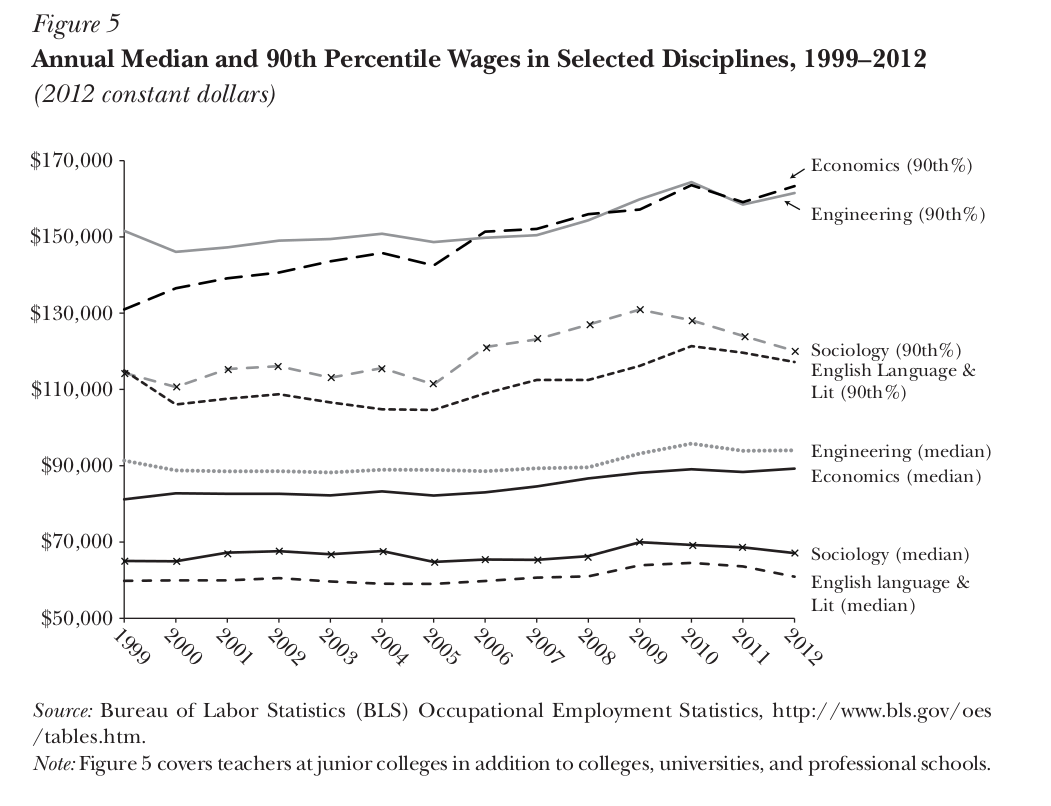- 1 What?
- 2 Why?:ATTACH:
- 3 How?
- 4 And?
- 5 References
1 What?
An analysis into economics superiority and the pecking order it built in the humanities discipline.
2 Why?
Economists are proud of their rigorous methodology, and they have better job placement than their peers in humanities. They are also in a position of changing how things works. Should they be given superiority?

3 How?
Exploring 4 dimension:
- Insularity of the economics discipline
- The degree of hierachy that exists within the discipline
- Changing network of affiliation of economics over the post-wwii period
- Insights into the material situation, worldviews and social influence of economists
4 And?
- I’m suprised to see so many doctorates are awared to women in psychology: a whooping 70% in 2010 in the U.S. Sociology come close. Economics, in contrast, awarded 70% doctorates to men. Males have lower cooperation rates. Might be fun to compare to Becker, Hubbard, and Murphy (2010).
- Insularity in economics: “…with 81 percent of within-field citations in 1997 – against 52 percent for sociology, 53 percent for anthropology, and 59 percent for political science.”
- Economic colonialism:
From the vantage point of sociologists, geographers, historians, political scientists, or even psychologists, economists often resemble colonists settling on their land—an image reinforced by some economists’ proud claims of “economic impe- rialism” (Lazear 2000). Lured by the prospect of a productive crop, economists are swift to probe the new grounds. They may ask for guidance upon arrival, even partner-up with the locals (with whom they now often share the same data). But they are unlikely to learn much from them, as they often prefer to deploy their own techniques. And in some cases, the purpose has been simply to set the other disciplines straight (Nik-Khah and van Horn 2012). Under the influence, notably, of Chicago price theory, the dominant economic paradigm has successfully conquered a segment of political science, law, accounting, and (for a while) sociology under the label of rational choice theory —thus explaining, in part, the directionality of the citation patterns observed above.
- Hierachy effect is much stronger in economics: top schools bandwagon around eachother. This is further enhanced by the belief that the search-and-matching process makes job placements more efficient, without affecting outcomes. Thus, universities rank students by themselves.
5 References
This post is in the collection of my public reading notes.